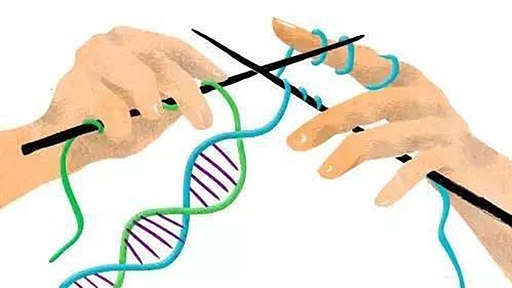GM ‘designer babies’: breakthrough or nightmare?
By Dave King,
Red Pepper
| 12. 06. 2021
Only a global ban on human genetic engineering can prevent a new era of eugenics from emerging.
Hongjie mao, CC BY-SA 4.0, via Wikimedia Commons
In late 2018, when He Jiankui announced that he had created the world’s first genetically modified (GM) babies, part of the worldwide outrage was motivated by the hope that we would not have to deal with this issue for at least ten years. Since then, eugenics has reared its ugly head in the experience of minority ethnic and disabled people during the pandemic, and with the revelations that women were being sterilised without their knowledge in one of Donald Trump’s ICE detention centres in Georgia. In Britain, we had the prime minister’s then chief adviser, Dominic Cummings, trying to appoint outspoken eugenicists to advisory roles in number 10 and to head up his pet Advanced Research and Invention Agency.
Eugenics is here and now; in fact, it never went away. That is why nearly all industrialised countries put in place legal bans on the genetic engineering of human beings in the 1990s or earlier. But despite that, scientific establishment bodies, which cannot countenance the idea of banning any type of...
Related Articles
By Anumita Kaur [cites CGS’ Katie Hasson], The Washington Post | 03.25.2025
Genetic information company 23andMe has said that it is headed to bankruptcy court, raising questions for what happens to the DNA shared by millions of people with the company via saliva test kits.
Sunday’s announcement clears the way for a new...
By Peter Wehling, Tino Plümecke, and Isabelle Bartram
| 03.26.2025
This article was originally published as “Soziogenomik und polygene Scores” in issue 272 (February 2025) of the German-language journal Gen-ethischer Informationsdienst (GID); translated by the authors.
In mid-November 2024, the British organization Hope not Hate published its investigative research ‘Inside the Eugenics Revival’. In addition to documentating an active international “race research” network, the investigation also brought to light the existence of a US start-up that offers eugenic embryo selection. Heliospect Genomics aims to enable wealthy couples to...
By Frank Landymore, Futurism | 03.18.2025
You can only throw so much money at a problem.
This, more or less, is the line being taken by AI researchers in a recent survey. Asked whether "scaling up" current AI approaches could lead to achieving artificial general...
By Craig S. Smith, Forbes | 03.08.2025
One recent evening in Shenzhen, a group of software engineers gathered in a dimly lit co-working space, furiously typing as they monitored the performance of a new AI system. The air was electric, thick with the hum of servers and...




